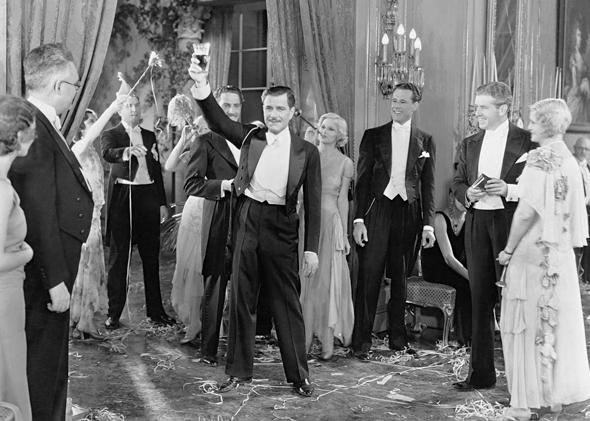Thus far in this series, we have covered a promiscuous range of entertaining questions. Some were general and frustratingly familiar, like the vexing issue of food restriction accommodation and the complicated choreography required for guest and host to wake up gracefully. Others were intriguingly specific, such as our exploration of the great lie we call “brie” and our (apparently politically charged) invective against washcloths. But as the series comes to an end, I want to retreat for a moment from the table, bar, and guest room into the quiet, contemplative confines of the study. I want to take some time to meditate on entertaining as a philosophical issue—because all the guidelines in the world are about as useful as an invitation without a date-and-time if the underlying foundation, the why that must undergird the how of entertaining, is not understood.
So, in that spirit, three final rules:
Rule No. 18: Attend to Detail
What distinguishes entertaining from the rest of life? What powerful tool does one need to carve out a few hours of hallowed time in which to acknowledge life’s joys and trials, to connect with fellow human beings, and to conjure a feast of pleasure out of the most basic ingredients? The big secret is … a little attention to detail.
Fresh flowers, a sparking glass, a little candlelight, a neatly arranged stack of guest linens—these are all small, simple, relatively inexpensive things that demarcate “entertaining time” from the daily grind. There’s nothing worse than coming to a dinner party or similar event where the host hasn’t taken the time to signal that this is, indeed, a special time. The guest feels like she is intruding into someone’s home life, rather than entering into a space created (through cleaning, adornment, and general care) for this occasion specifically. To steal a term from anthropology, entertaining is a kind of “liminal space,” a special frame of existence like a wedding or funeral in which normal concerns dissolve in service of a more communal purpose. And just about all liminal spaces I can think of involve a certain (if small) amount of special decoration, details that help participants transition into a more intimate mode of paying attention. Once you’ve determined the details that do this well in your space and to your taste, keep them in your back pocket: When you’re ready to entertain, pull them out, and half of the work is done.

The delight is in the details.
Photos by Everett Collection/Shutterstock
Rule No. 19: For the Love of God, Reciprocate!
When I began curating this series, the main complaint I heard from fellow entertainers—by far—was that no one reciprocates anymore. Once I’d considered this claim, I realized they were right: Many cherished individuals who had passed through my door (some on multiple occasions) have never once extended an invitation in return. While this might make some hosts angry, it left me with a feeling of disappointment—surely these wayward souls had a good reason (in their minds) for not reciprocating (space, time, presumed expense, trouble), but could these excuses really compete with the potential for edifying conversation, laughs, and good cheer that had been wasted?
I’m sure I am not alone in treating entertaining—especially smaller dinner parties—as a way of forming and strengthening new friendships. Given that fact, failing to reciprocate is about the same as leaving my high-five unanswered on a crowded street. Having been left hanging, I’m not inclined to continue the game (hanging for too long makes me tired). Now, I’m also not one to hold grudges, but non-reciprocators should consider their impact on the larger social culture: If you neglect to honor your half of the contract, the whole system will crumble and you will have no one to blame but yourself when you find you have nothing to do on a Friday night.
A final note for those who will inevitably complain that while they enjoy socializing at others’ events, they find the prospect of hosting themselves intimidating: No person who you really wish to be friends with is going to care if you do not “match” their level of entertaining prowess. Remember that there are people who get off on being fussy about a dinner party or cocktail soiree or perfectly appointed guest room, and their effort is their prerogative. I am one of those people, but I am perfectly happy spending time with friends in their homes, even if all they feel comfortable serving is take-out or store-bought tortilla chips. Heck, inviting me to a restaurant is better than nothing. The point is, however you want to do it, don’t let those whom “you owe” down—reciprocate!

Don’t let me down!
Photo by Everett Collection/Shutterstock
Rule No 20: Have an Entertaining Philosophy
In closing, it’s worth noting that to be a successful entertainer, you need to think about it, like any art form worth studying, in the abstract—as I wrote in the opening post, “special occasions are not organic occurrences; they must be created.” So, in a studious spirit, I approached the two most skilled entertainers in my life for a distillation of their “entertaining philosophies.”
Daniel Isengart, a private chef, writer, and cabaret artist:
I like to eat, but I prefer to cook. And yet, lovingly prepared food as well as a pleasant, welcoming setting and good wine are a mere backdrop to the main reason for holding a dinner party: Conversation. I like people who are interesting to listen to and I like people who know how to listen. A successful dinner party brings together a healthy mix of both, and as a host, I have the responsibility to make sure that everyone is included in the conversation – and if needed, to subtly create an opening for good listeners to talk and for good talkers to listen. The rest is the madness of home entertainment.
Charles Kaiser, journalist and author of The Gay Metropolis and other books:
Entertaining is a lot like journalism on deadline: You spend the day assembling the most interesting ingredients you can find (human, edible), then put them together in the most compelling way possible. The better the ingredients, the less time you’ll have to spend preparing them.
Then master the art of the perfect vinaigrette. It should always be four parts olive oil to one part vinegar (red and/or white), a dash of lemon juice, and salt and pepper. Salt the lettuce before applying the dressing. Never ever use Balsamic–it will overwhelm all the other ingredients. Shaken, not stirred. Please don’t drown the salad: Use just enough to cover the lettuce leaves (I prefer Romaine, for crunchiness), the tomatoes, the chopped scallions, and one ripe avocado. And always serve the salad after the main course. If you can afford expensive olive oil, use it! It really makes a difference. Once you’ve learned how to make a reliable vinaigrette, almost everything else will take care of itself.
Come to think of it, having a good recipe is a rule that applies widely—helps you to navigate the madness. Hopefully we’ve provided a few of those here.
Happy entertaining!
